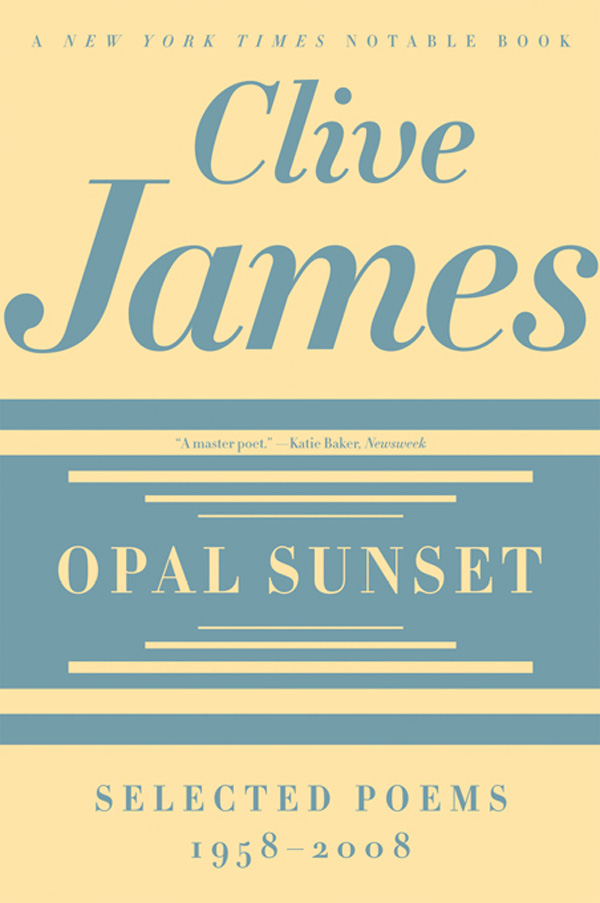 BY CLIVE JAMES AUTOBIOGRAPHY Unreliable Memoirs Falling Towards England May Week Was in June North Face of Soho FICTION Brilliant Creatures The Remake Brrm! Brrm! The Silver Castle VERSE The Book of My Enemy: Collected Verse, 19582003 TRAVEL Flying Visits CRITICISM Reliable Essays: The Best of Clive James The Metropolitan Critic (new edition, 1994) Visions Before Midnight The Crystal Bucket First Reactions At the Pillars of Hercules From the Land of Shadows Glued to the Box Snakecharmers in Texas The Dreaming Swimmer On Television Even as We Speak As of This Writing The Meaning of Recognition Cultural Amnesia C LIVE J AMES
BY CLIVE JAMES AUTOBIOGRAPHY Unreliable Memoirs Falling Towards England May Week Was in June North Face of Soho FICTION Brilliant Creatures The Remake Brrm! Brrm! The Silver Castle VERSE The Book of My Enemy: Collected Verse, 19582003 TRAVEL Flying Visits CRITICISM Reliable Essays: The Best of Clive James The Metropolitan Critic (new edition, 1994) Visions Before Midnight The Crystal Bucket First Reactions At the Pillars of Hercules From the Land of Shadows Glued to the Box Snakecharmers in Texas The Dreaming Swimmer On Television Even as We Speak As of This Writing The Meaning of Recognition Cultural Amnesia C LIVE J AMES  O PAL S UNSET Selected Poems, 19582008
O PAL S UNSET Selected Poems, 19582008  W. W. NORTON & COMPANY NEW YORK LONDON to
W. W. NORTON & COMPANY NEW YORK LONDON to
Robert Weil Contents A Note on the Text T he poems in this selection are drawn from two main reservoirs of work. In the contents list, all the poems up to and including The Great Wrasse (a word which the people of Australias Great Barrier Reef pronounce with two syllables, to rhyme with sassy) are selected from The Book of My Enemy: Collected Verse 19582003 , a much larger volume which is still in print in Britain and Australia. The last poem in the contents list, As I See You, also appears in that book, leading the section marked Earlier Verse in its role as the first poem of mine that ever saw the light of day: I have employed it as a closing number here because of the neatness with which it signifies that I somehow, at the age of eighteen, started off with my sense of impending doom already intact. Apart from all those poems, no poem on the list from Status Quo Vadis (whose title is a howler I stole from the movie Strictly Ballroom ) to The Nymph Calypso has yet appeared in volume form anywhere, although all of them first appeared in any one of several newspapers and magazines whether in Britain, Australia or the United States.
The book thus breaks roughly into halves, with the selected work of my first forty-five years as a poet forming the first half, and the selected work of the next five forming the second; but I hope the apparent disproportion doesnt mean that I have been less rigorous about choosing the later poems. What has happened to me in recent years will be familiar to anybody who does this sort of thing for a living: I hit a productive streak. I was just lucky enough to hit it late, when a lot of things I had always wanted to say were at last ready to be written down. It isnt so much that you finally get good enough to say it. Its that it finally agrees to be said. Acknowledgements M y thanks are due to the editors of The New Yorker , the New York Times , Poetry (Chicago), the Australian , the Australian Book Review , the Australians Review of Books , the Australian Literary Review , the Monthly , Meanjin , Encounter , the Listener , the London Review of Books , the New Review , the New Statesman , the Liberal , the Spectator , the Guardian and the Times Literary Supplement , in which many of the poems from which these were selected first appeared.
Even when I failed to gain acceptance, I always got consideration; and since nobody wants to be published by the kind of editor who prints everything, I have always tried not to gripe when one of them bounces my latest effort. Often enough, they are right, and, more than often enough, they actually print one of my poems, an event that has never lost its thrill for me in half a century. Like any old hand I like to think myself cool, but I have never quite managed to take it for granted when I see my poem on the page. They say that when he landed after his first trip through the sound barrier, even Chuck Yeager cracked a smile. Speaking of editors, my special thanks should go to Alan Jenkins, Karl Miller, Anthony Thwaite, Claire Tomalin, John Gross, Tina Brown, Alice Quinn, Christian Wiman, Mary-Kay Wilmers, Ben Ramm, Mark Amory and the late Ian Hamilton, all of whom, at various times, played uncomplaining host to the kind of guest who not only moves in, but spreads himself out. I should also, on a point of national pride, acknowledge the generosity of Shelley Gare, Les Murray, Peter Porter, Peter Rose, Sally Warhaft, Luke Slattery, Donata Carrazza, Peter Craven, Judith Beveridge and Stephen Romei, for their gratifying conviction that some of my work in verse should be brought home to Australia, the land that continues to inspire it all, even when I have been so long away.
I should say at this point, however, that I am nowadays very often shuttling between my two homelands, and that several poems in this book were composed at high altitude. The Atlantic run, also, has become a steadily more favourable mobile atelier for verse, especially when the aircraft is surfing in the jet-stream: somehow the extra speed gets into ones scansion. I should also thank my book editors in London, Tom Maschler, Peter Straus and Andrew Kidd, for their generosity in countenancing the sort of publishing venture that joins the bottom line to the far horizon. Finally, my thanks to Robert Weil in New York, who took a chance on my prose book Cultural Amnesia , and now compounds the audacity by introducing an almost unknown foreign poet to an American audience. Ideally, of course, the poet doesnt have to be known. The book of poems only has to be good.
But someone has to publish it first. Introduction D uring fifty years of writing verse, I have never wavered from the conviction that the self-contained poem is the thing that matters. I have written longer poems, but I always thought that they should not, in their constituent episodes, wander too far from the appreciable unity of the stand-alone poem which could be committed to memory and recited aloud by anyone who wanted to. A poem should make you want to say it even if you dont understand it: that, indeed, is how you recognize it to be worth the effort of trying to understand. Unfortunately, as I argued in my book of critical prose Cultural Amnesia , there is a penalty to be paid by any field of creative endeavour that becomes a successful commodity. Ceasing to be pursued for its own sake, poetry becomes a career move, and proves its academic prestige by deliberately putting itself out of reach of common appreciation.
In the later part of the twentieth century the idea built up that a poet might go a long way towards writing poems that could not be spoken aloud at all even in the merest moments of their language, and that this development might even be considered an advance in the art form. There would be no local coherence, even in a single line. The poet would be appreciated through a body of work. As a consequence, the separable poems no longer needed to be the thing that counted most in the total achievement of a professional poet with a reputation. I have never trusted that idea, partly because, having been blessed, or cursed, with the knack of earning my bread in show business, I was seldom regarded as a proper professional poet, and for a long while had no poetic reputation to speak of, except perhaps as a kind of court jester who was occasionally allowed to perch in a window niche and sing a lament over the ruins of the nights revelry. In the course of time most of my earlier criticsthe ones who were always keen to remind the world that I was only an entertainereither died off or went silent, and I was allowed to have some kind of reputation anyway.
But I still clung to the idea that the poem came first and the poets name came second. I didnt think that a poets name should be remarked unless the poems were remarkable. That priority of valuation first got into my head when I was a student at Sydney University in the late 1950s. Modern poetry was not a subject on the course, and therefore I read it with redoubled passion. Though I paid proper attention to the longer works of Ezra Pound and T. S.
Next page

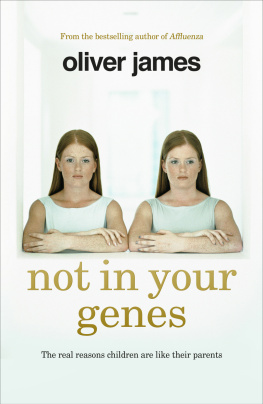

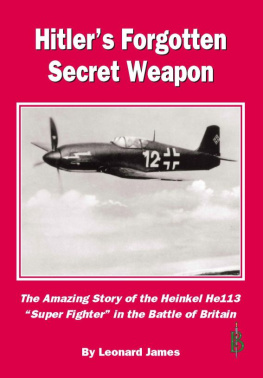

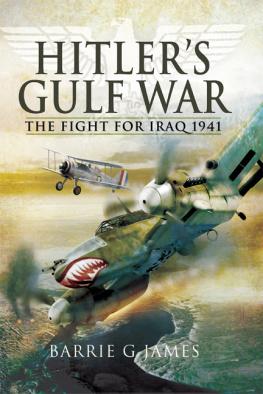
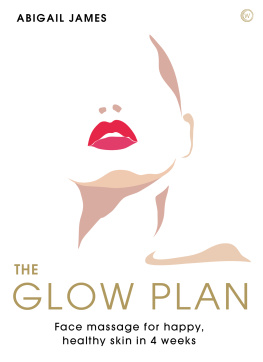
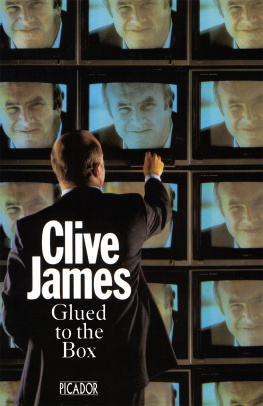
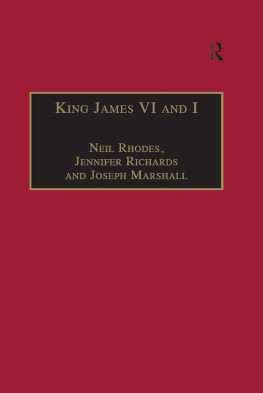
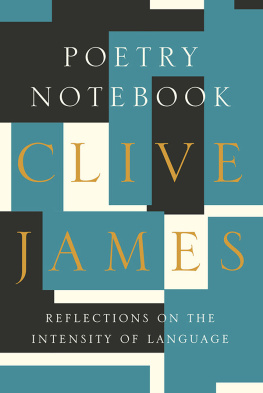
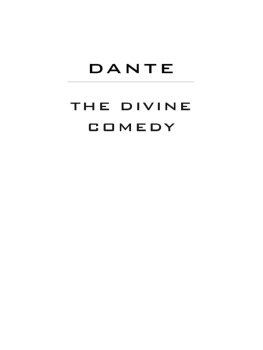
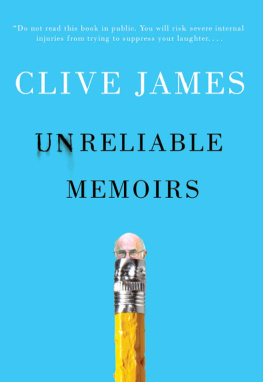
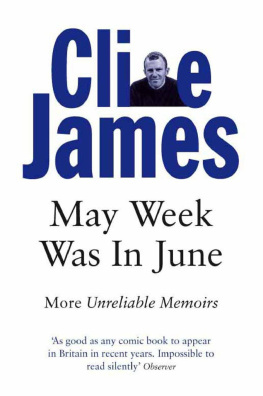
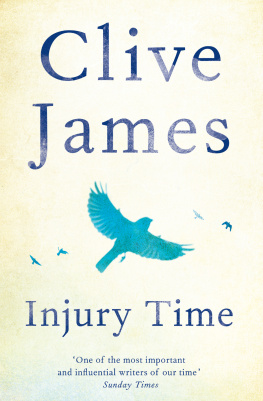
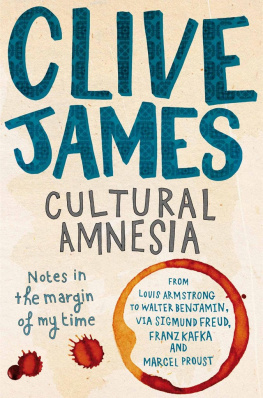
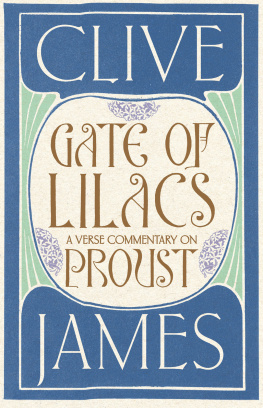
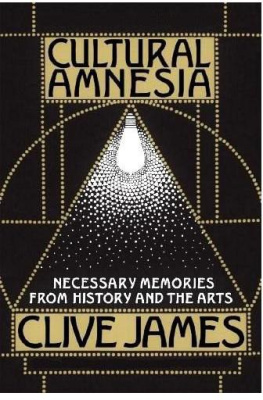
 BY CLIVE JAMES AUTOBIOGRAPHY Unreliable Memoirs Falling Towards England May Week Was in June North Face of Soho FICTION Brilliant Creatures The Remake Brrm! Brrm! The Silver Castle VERSE The Book of My Enemy: Collected Verse, 19582003 TRAVEL Flying Visits CRITICISM Reliable Essays: The Best of Clive James The Metropolitan Critic (new edition, 1994) Visions Before Midnight The Crystal Bucket First Reactions At the Pillars of Hercules From the Land of Shadows Glued to the Box Snakecharmers in Texas The Dreaming Swimmer On Television Even as We Speak As of This Writing The Meaning of Recognition Cultural Amnesia C LIVE J AMES
BY CLIVE JAMES AUTOBIOGRAPHY Unreliable Memoirs Falling Towards England May Week Was in June North Face of Soho FICTION Brilliant Creatures The Remake Brrm! Brrm! The Silver Castle VERSE The Book of My Enemy: Collected Verse, 19582003 TRAVEL Flying Visits CRITICISM Reliable Essays: The Best of Clive James The Metropolitan Critic (new edition, 1994) Visions Before Midnight The Crystal Bucket First Reactions At the Pillars of Hercules From the Land of Shadows Glued to the Box Snakecharmers in Texas The Dreaming Swimmer On Television Even as We Speak As of This Writing The Meaning of Recognition Cultural Amnesia C LIVE J AMES  O PAL S UNSET Selected Poems, 19582008
O PAL S UNSET Selected Poems, 19582008  W. W. NORTON & COMPANY NEW YORK LONDON to
W. W. NORTON & COMPANY NEW YORK LONDON to